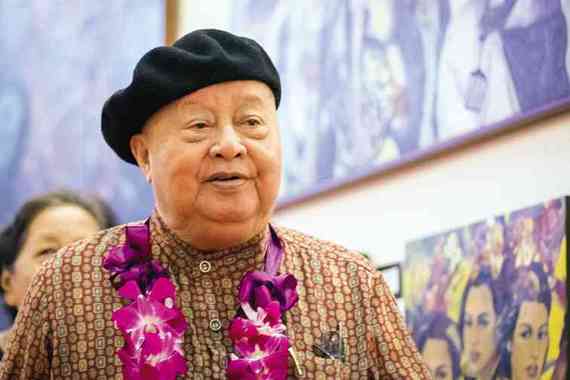We Filipinos have been burnt to ashes by collaborators, haven't we? From those who collaborated with Spaniards during the colonial times to those who collaborated with the Japanese during World War II to those who might collaborate with the Chinese as the South China Sea dispute worsens. We call them collaborators, spies, traitors, betrayers, turncoats, Judas, Ahas. In times of war, some Filipinos get bought, their voices are bought, their souls are bought. They do what they do for reasons so complex it's hard to put a finger on motives, albeit ethnic loyalty could very well be one of them. Who really knows?
And then there are the silenced, those who sit in the background and . . . watch. My father told me many times when I was a kid that when he and his comrades were being marched through Bataan in 1942, many Filipinos in the villages they passed simply . . . . watched. While there were those who collaborated with the enemies of the time, there were also those who hid and did absolutely--nothing, the do-nothings and the bahala-na types who waited for the sun to come out when it was safe for them to crawl out of darkness so they could go about their business as usual.
The Philippines is a country where many live in fear. Desperation calls for difficult choices to be made, motivated for the most part by fear. Fear, the enemy we never fought because we are too busy pointing fingers at the other. Fear of the other, as Michael Ignatieff wrote in Warrior's Honor: Ethnic War and the Modern Conscience, is what triggers war. And the illusion of nationalistic fervor begins with identifying the other and making subtle threats, like the one you wrote in your article, To Tell Truth About Chinoys and Love of Country Are Not Racist:
As for the rest [Chinese-Filipinos], there is only one solution: either they recognize their loyalty to China then go to China, or integrate.
Go to China: how that one phrase travels across oceans and grabs my own Filipino experience in America by the neck. One doesn't have to be in the Philippines to understand how deeply racist that statement is. Even my own mother has been taunted in a supermarket over simple arguments about produce with: Go back to China.
Mr. Philippine National Artist, I have respected your writing for decades, especially your narratives of the poor and underrepresented. I appreciate your prominence in Philippine literature and respect your well deserved ascent to National Artist stature, but using your position for propaganda is where I will draw the line.
Unfortunately, hate propaganda is nothing new in times of national crises. Identifying mythic enemies amongst us and demonizing them is the beginning of all atrocities of war. It feeds the outrage of people who need someone or some other to blame for their helplessness and plight. While your call for Chinoys/Chinese Filipinos to be patriotic and loyal is clear, it will eventually fall on deaf ears as hate takes over people's consciousness, transforms, and awakens anti-chinese sentiments that have been sitting dormant in the Filipino soul for years. Triggers could be anything from being taunted as a child for looking "chinoy" to working for rich Chinoys and not being promoted. Growing up in Manila, I have witnessed this othering--Filipino Moslems, Chinese, and LGBTs were often the target. Death, at the hands of a hate mob, is often the end result. World history has shown us time and again where hate propaganda leads, from the genocide of six million Jews during World War 2 to the genocide of 100,000 Bosnian Moslems and Croats by Serbian forces in the 1990s.
No matter how much I disagreed with most of what you wrote, I appreciate your honesty and applaud you for opening a forum for the public to ponder upon or debate the South China Sea issues. I always saw you as someone who believed in the empowerment of the oppressed and the silenced, Filipinos who watch history march by without understanding why it keeps repeating itself. They are the ones we need to rally in times of conflict, to unite not divide. We have them in numbers. We need their voices. The archipelago of multiple perspectives in the Philippines is something special and unique to our people, if only we could use it to build communities, dialogue and learn from our differences, and not to bully or punish.
The stories of World War 2 were ever present in my childhood, and I learned early that fear and hate is the burnt rice at the bottom of the war narrative pot. In my mind, the Death March narrative has a potential for historical learnings and action for change, how the Filipino people rallied and organized to help the Death Marchers instead of waiting for superpowers to save them. The Philippines would be a totally different country if the people's sense of bayanihan left romanticism and permeated social realities--against corruption, against inequality, against incursion of another superpower, against fear. If a national bayanihan takes effect, who has time to worry about collaborators? Kaya Natin,
